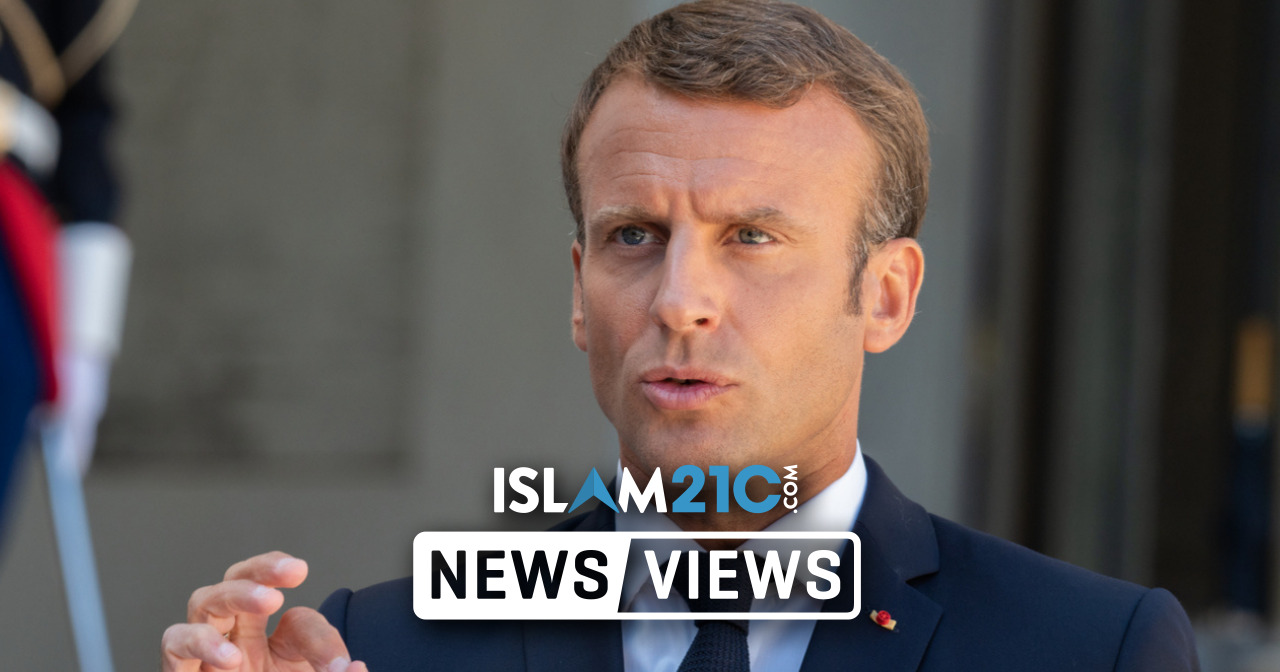In further attempts by French President Emmanuel Macron to protect France’s secularist nature, the Conseil Français du Culte Musulman (French Council of the Muslim Faith) has been given fifteen days to comply with demands to work with the Interior Ministry.
The CFCM, established in 2003 by the then-Interior Minister Nicolas Sarkozy, has grown in membership and currently comprises a mix of progressive and conservative affiliates. It is the officially recognised ‘interlocutor’ of French Muslims with the government.
Macron and Interior Minister Gérald Darmanin have raised concerns about the presence of a number of foreign imams from countries such as Turkey, Morocco, and Algeria. Macron has reiterated his desire to put an end to this within four years, and he has already had the approval of the CFCM in creating a so-called ‘National Council of Imams’ for masjid leaders to be ‘approved’ and also stripped of their authority if deemed necessary.
The ultimatum pressures the CFCM to establish a charter that emphasises and reaffirms ‘republican values’ on its member organisations.[1]
Such a charter would involve a declaration by the nine federations of the CFCM that Islam is a religion that has no political elements attached to it, and that member organisations should end affiliations and ‘interference’ with foreign countries.
This development is outrageous, as Macron is attempting to change Islam into something with which he feels comfortable. Politics and religion (siyāsah and dīn) are undoubtedly inseparable, and this threat to Muslim leaders to accept such terms is causing tensions to further rise amongst Muslims, not only in France but also around the world.
Ibn Khaldūn, the renowned scholar of history and sociology, wrote about politics and religion:
Al-Siyāsah on the basis of Islamic teachings means to lead the people in accordance with shar’ī guidelines, in a manner that serves their interests in the Hereafter as well as in this world, for their interests in this world are connected to and may serve their interests in the Hereafter. This is because the Islamic guidelines concerning the life of this world are connected to what serves people’s interests in the Hereafter. Thus, al-Siyāsah al-Shar’iyyah, in reality, means acting in the stead of the Messenger in guarding religious affairs and taking care of worldly affairs.[2]
The results of the discussions with the CFCM and their impact on France and its population of roughly 3.5 million Muslims remain to be seen, but it is clear that whatever happens next will be a strong indicator of whether other European governments will follow suit.
[donationbanner]
Source: www.islam21c.com
Notes:
[1] https://www.bbc.co.uk/news/world-europe-55001167
[2] https://islamqa.info/en/answers/181673/politics-from-an-islamic-perspective Muqaddimat Ibn Khaldūn (p. 97)










I don’t know about Germany or Turkey, but Muslims in France would be well-advised to check on the requirements for people applying to immigrate to the UK before they start making plans to go there. A couple of million muslims in France assuming they can enter the UK without question may find they face unexpected and unwelcome responses when they actually try to do so.
It is time for Muslims in France to seriously start making plan to migrate to UK, Germany or Turkey. We also need to start preparing to take them in. They are now being persecuted for saying La ilaha ila Allah, Muhammadun RasulAllah. I fear it is not long before the French government start doing to the Muslims what the Chinese have.